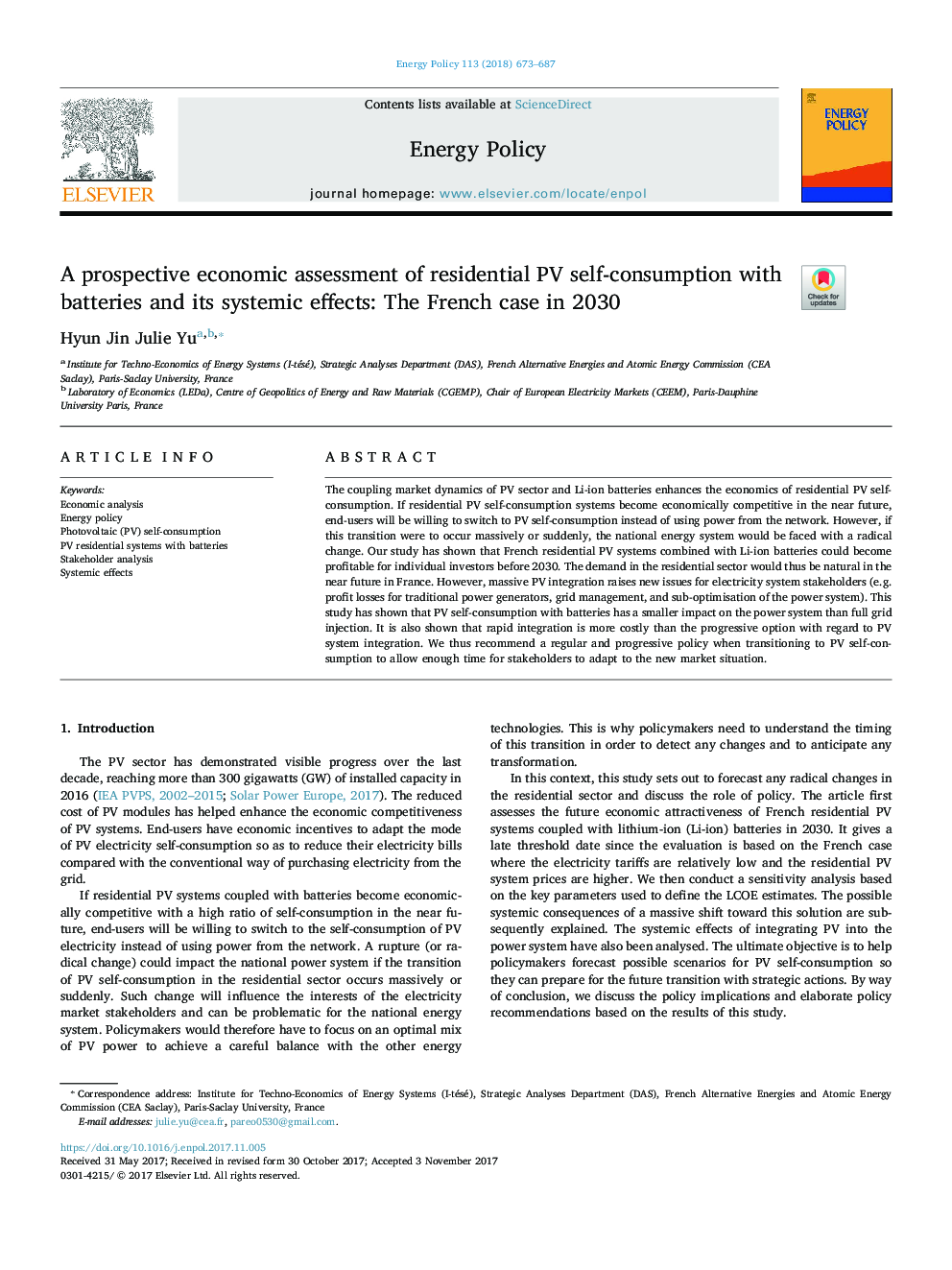| Article ID | Journal | Published Year | Pages | File Type |
|---|---|---|---|---|
| 7397942 | Energy Policy | 2018 | 15 Pages |
Abstract
The coupling market dynamics of PV sector and Li-ion batteries enhances the economics of residential PV self-consumption. If residential PV self-consumption systems become economically competitive in the near future, end-users will be willing to switch to PV self-consumption instead of using power from the network. However, if this transition were to occur massively or suddenly, the national energy system would be faced with a radical change. Our study has shown that French residential PV systems combined with Li-ion batteries could become profitable for individual investors before 2030. The demand in the residential sector would thus be natural in the near future in France. However, massive PV integration raises new issues for electricity system stakeholders (e.g. profit losses for traditional power generators, grid management, and sub-optimisation of the power system). This study has shown that PV self-consumption with batteries has a smaller impact on the power system than full grid injection. It is also shown that rapid integration is more costly than the progressive option with regard to PV system integration. We thus recommend a regular and progressive policy when transitioning to PV self-consumption to allow enough time for stakeholders to adapt to the new market situation.
Related Topics
Physical Sciences and Engineering
Energy
Energy Engineering and Power Technology
Authors
Hyun Jin Julie Yu,
